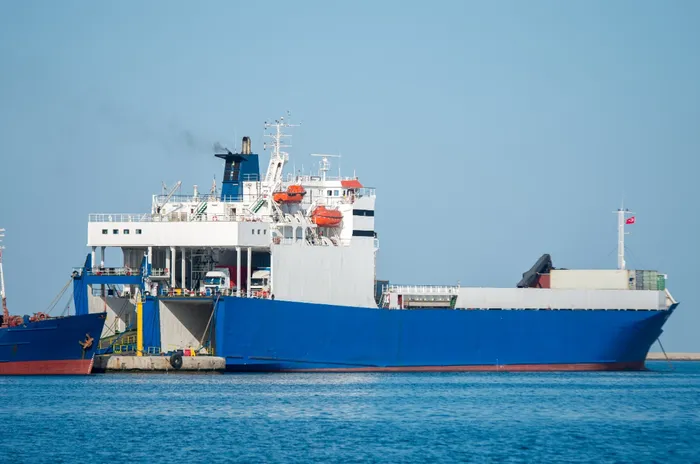
A report by Enact Africa revealed how criminals use vessels to transport and source in South Africa, Angola, and Namibia through the South Atlantic Ocean.
Image: Supplied
Maritime crime in South Africa, Angola, and Namibia primarily involves illegal, unreported, and unregulated fishing, oil and fuel smuggling, and drug trafficking.
South Africa is a significant hub for cocaine transit and faces issues with poaching. Criminal networks leverage these rich maritime resources, with corruption at various levels of government and industry exacerbating these problems.
This is according to a new report, Securing Africa’s South Atlantic, compiled by Enact Africa which revealed how maritime crime is perpetrated in some Southern African Development countries, with transnational criminal networks using vessels transporting and sourcing illicit commodities through the South Atlantic Ocean.
The report states that most cocaine entering South Africa is transported in containers from Brazil.
The report also details how criminal networks take advantage of existing illicit trade and target established trade routes rather than preferring certain ports.
Enact said this is the reason why illegal trade often passes through ports with high trade volumes, such as Durban and Walvis Bay in Namibia.
Although ports form bottlenecks and are often where illicit shipments are seized, the colossal volume of trade complicates the identification of illegality.
Coupled with this are often parallel legal and illegal shipments of the same commodity, which obscures illegal trade, and limited technology and profiling abilities to identify illicit shipments.
According to the report, vessels, as instruments of crime, are uniquely difficult to counter. They are often transnational – registered in one country, carrying crew and cargo from across the globe, fishing under licences from multiple countries, and passing through different states’ waters.
“Different vessels facilitate Transnational Organised Crime (TOC) – from container vessels to fishing vessels, small dinghies, pleasure craft, and uncrewed vessels. Vessels’ size, design, and technology dictate how far offshore they can travel, and how much and what kinds of goods they carry,” read the report.
The report added that this also dictates whether they can access remote shorelines or large commercial ports.
The choice of vessel is influenced by the commodity being moved, its size, origin, destination, and the criminal networks’ access to vessels. Some vessels engage exclusively in criminal activities, while others participate primarily in legal trade. Some, like fishing vessels, are more susceptible to criminal activity due to the nature of their operation.
While fast vessels are often preferred for a quick getaway, routes and vessels are also chosen based on the corruptibility of crew members.
Enact said that shipping containers allow bulk shipments to cross the globe at low cost, with large illicit shipments often concealed by legal trade.
The options for exploiting containers are bountiful, and without risk profiling, even finding a container exclusively carrying illegal goods is akin to finding a needle in a haystack.
“Illegal commodities are routinely hidden among legal goods – they may be placed in hidden container compartments, misdeclared, swapped using the ‘rip on/rip off’ method (original seals are broken, cargo replaced and fraudulent seals applied), commingled with lookalike products, or placed into containers when vessels are already at sea.
“Because containers follow shipping schedules, they often pass through multiple jurisdictions and are transhipped. For example, in 2018, a 400kg cocaine shipment was found in Namibia, hidden among packages of photocopy paper. It left Brazil’s Port of Santos, transited through Cape Town, and was seized in Walvis Bay. Drugs have also been attached to vessels. This parasitic method entails a diver securing a shipment to a vessel’s hull, which is then retrieved by the same or another diver upon reaching its destination.”
“A Brazilian diver responsible for these attachments was arrested on his way to South Africa in 2023,” the report stated.
The author of the report, Carina Bruwer, told Independent Media that all maritime crimes originate from land-based causes and most international trade takes place at sea, regardless of whether the commodities are sourced on land or at sea. She said this includes Africa’s biodiversity and natural resources.
Although the region's law enforcement entities are trying their best, countries struggle with limited resources to protect their maritime domains.
“The challenge of limited resources is not unique to Southern Africa or Africa as a whole. No country in the world can fully monitor their maritime domain and respond to incidents at sea. If you consider the size of the exclusive economic zone (EEZ) of each of the three countries that the report focuses on, these are huge maritime domains to monitor.”
“And even if you do monitor them, such as through the use of technology, you need vessels able to respond to incidents,” she said, adding that identifying illegal trade among masses of legal trade is difficult, and many smaller harbours and vessels are hardly monitored.
Enact said that corruption is rife in the maritime industry, with small-scale bribes paid to port staff and officials to ignore violations, lower penalties, or allow labour law violations, which can result in human trafficking and forced labour practices.
“Corruption also extends to the highest levels of government, with many illicit activities at sea being facilitated by state actors acting as intermediaries.”
Cape Times